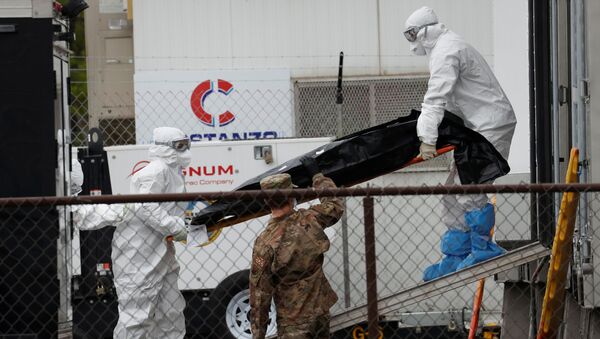A new study published in the peer-reviewed journal Health Affairs calculated a sobering COVID-19 death toll, ranging from 350,000 to 1.2 millions lives lost by the year’s end if additional measures are not introduced.
The research, published on May 7, concluded the infection fatality rate among symptomatic cases (IFR-S) of COVID-19 in the US is around 1.3%, according to national novel coronavirus data through April 20.
Comparatively, the seasonal flu has an IFR-S of around 0.1%.
“COVID-19 infection is deadlier than flu - we can put that debate to rest,” asserted Anirban Basu, the study’s author, a professor of health economics and the Stergachis family endowed director of the Comparative Health Outcomes, Policy and Economics (CHOICE) Institute at the UW School of Pharmacy.
Knowing the IFR-S, researchers warned that if the highly contagious novel coronavirus infects the same number of Americans as the influenza virus did in the 2018-2019 season - about 35.5 million people - then the US could see its current death toll climb to around 500,000 by the end of 2020.
As of this article’s publication, the US has recorded over 1,530,000 cases of the novel coronavirus and at least 92,149 related deaths, according to Johns Hopkins University. Nearly 12.3 million tests for COVID-19 have been performed in the country, and around 290,000 recoveries from the virus have been confirmed.
Basu noted that while this scenario alone would present a grim outlook, the novel coronavirus is actually more infectious than the influenza virus.
To reach a more accurate forecast, researchers put forth a “conservative estimate” of 20% of the population becoming infected with disease by the end of the year, assuming the trends of health care and social distancing observed through April 20 continued.
According to the researchers, who also accounted for those infected who will recover asymptomatically, the number of COVID-19-related deaths in the US under the second forecast could be between 350,000 and 1.2 million.
“This is a staggering number, which can only be brought down with sound public health measures,” Basu said.
“Our hope is that our study results can help inform local and national policies that will save lives in the future,” he added. “Ultimately, we want this work to advance the health of people around the world.”
The university news release concerning the study comes alongside a concerted push by US President Donald Trump to lift the widespread lockdowns across the nation and reopen the country’s economy. As of Wednesday, all 50 US states have partially reopened, but anxiety related to contracting COVID-19 persists.
Over the weekend, the US Centers for Disease Control and Prevention released its highly anticipated guidance packet on the reopening of schools, restaurants, child-care facilities and transit. The 60-page report was reportedly slated for release earlier this month, but was allegedly shelved by the Trump administration. The unannounced and delayed publication of the CDC report may lead many state governments to discount the national public health institute’s guidance.


